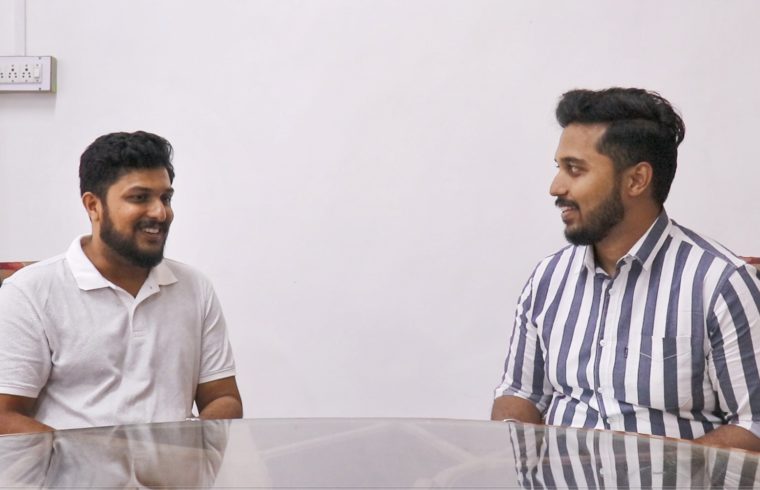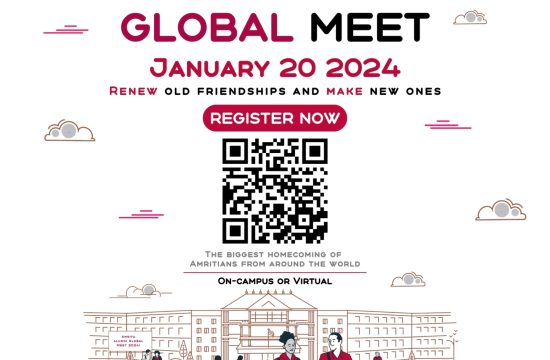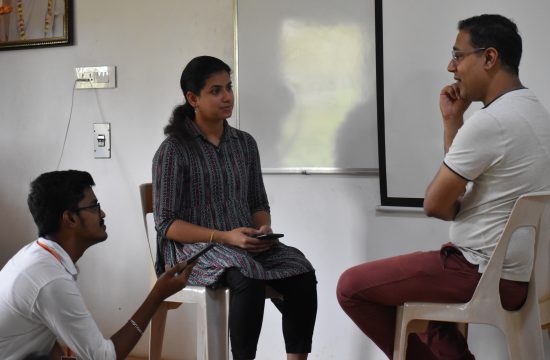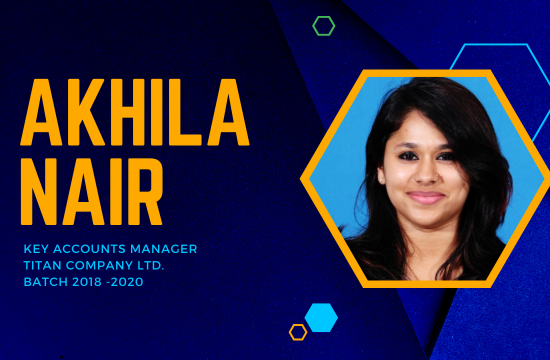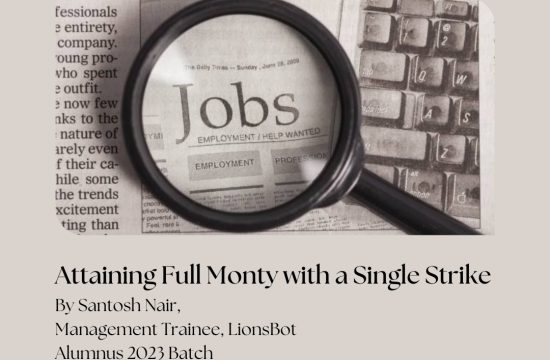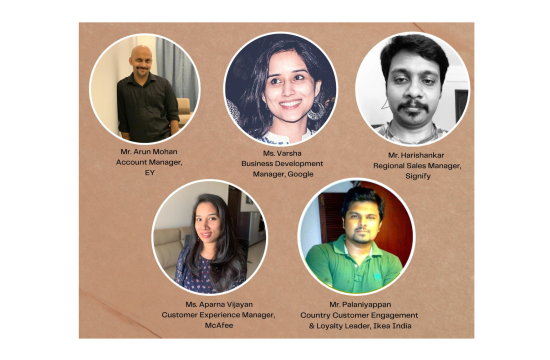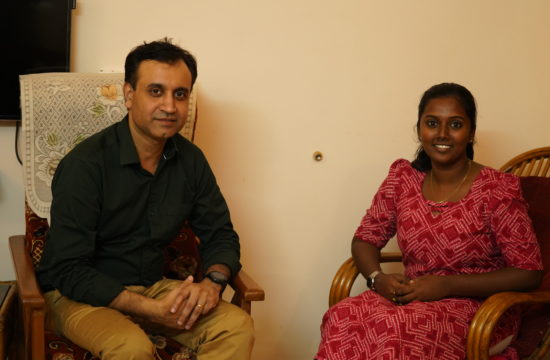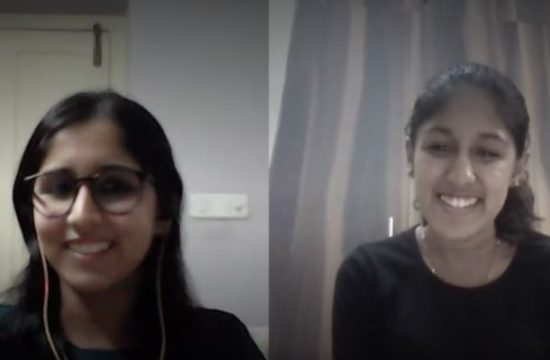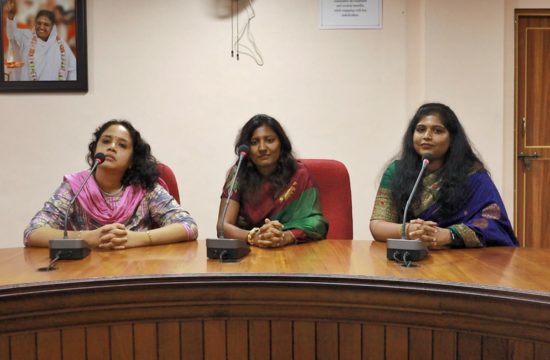Welcome to the very first episode of the Alumni interview series of ASB Social. We have with us our alumnus Govind Krishnan from the 2015-17 batch. He is currently working at Hitachi Energy as a Marketing Communication Specialist.
Q: How was your experience at ASB?
My experiences with ASB have been one of the best in my life. I really enjoyed my 2 years here at ASB and something that I wish to go back to. Lots of learnings, good memories, and a lot of good friendships.
Q: How do you feel coming back to the campus?
It’s amazing to come back to the campus and walk down the corridors that we used to walk almost daily for 2 years. And I kind of like half expect to see the faces that I saw in these corridors long back. When we see some of the faces suddenly we think of something that we knew. So, it’s a strong hit of nostalgia, happiness, and a little bit of sadness because we not able to do that very often.
Q: Rather than asking what you learned out of MBA, let me ask you what non-academic learning you had after coming to ASB that helped you in your career.
So, for me, I think non-academic learning lasted more than academic learning. And these are probably small things that you won’t notice. Like how you talk to people, how to approach a problem, and how you think of things from a different perspective all because of the experiences here, with your peers, with your teachers, and the industry. Being in Placecom helped a lot, getting that sort of perspective into what corporates expect. But really, to be frank, non-academic learnings are more with me or throughout my journey within ASB. It’s not saying that academic learnings are not a part but the non-academic learning is something one uses in everyday life while one works.
Q: How has ASB shaped you to become a better marketing professional?
The faculty was amazing. Everyone used to be supportive and open. They were never reluctant to share their experiences or guide us. They were not spoon-feeding but were really questioning us or questioning what was running through our minds which probably helped to answer more questions than any other method I could probably recall. I think that’s one of the biggest things that helped. Like I said earlier these small experiences, and the interactions we had with students, industry, and companies all of them helped in molding me professionally.
Q: What motivated you to join the National Innovation Foundation [NIF]?
So, I remember the person from the National Innovation Foundation did a pitch here in ASB. And the moment the pitch was over I kind of had in mind that this is one of those companies I really want to work with. The reason for that was because it was so different from what you would get in any other corporate or any other org. There was something really very satisfying about, you know helping build the culture of innovation and build the culture of entrepreneurship by supporting people who would not benefit otherwise would not have the kind of background or resources to do that. That was very interesting for me and kind of pushed me to get that job.
Q: In a way, was NIF your first love ?
If I say that it will create other problems. But career-wise it was one of those companies that I dreamed of working with and it ended up being a reality.
Q: So, during your time at NIF, you travelled across industrial clusters in India and coordinated exhibitions in Rashtrapati Bhavan. What is the one unforgettable experience you had at NIF?
I would say the satisfaction of so many people or the happiness of so many people, the warmth they shared when we are trying a lot to get things done for them. We are talking to people from grass root to the highest bureaucracies. So, we are kind of connecting these two people so that these grassroots innovators can really progress in their endeavours.
And we do certain things that really made a difference for them. It was something that was most defining for me. The funny thing is there was more than one instance in which you have some grassroots innovators reaching out to us, sharing their success because of the things that we did selflessly for them or trying to help them achieve. So that were some of the things that were satisfactory for me.
Q: The gratitude you get back?
Not gratitude but the realization that some of our actions help someone progress in ways they would not be able to achieve otherwise. So, it is not gratitude it is about seeing them succeed. That’s all of a memorable experience.
Q: Most people working in core marketing jobs have a sales background in a similar industry. But you took an unconventional path? Why?
It’s not entirely true. Before joining MBA, I was working as a Senior Engineer at GMMCO Ltd for more than two years. I saw MBA as an option to change to a direction that I probably wanted to explore in the future. While pursuing my MBA I explored all the domains I had, and I realized I kind of fit into a marketing profile. I didn’t immediately move into marketing, I was kind of like in the transition from sales to business development and then to marketing. So, it’s not unconventional but it is not entirely easy as well.
Q: Do you think the faculties here played a major role in you taking marketing as your specialization?
As I said earlier, the faculty here always had a very positive influence academically and non-academically. So, their thoughts and suggestions gave me some sort of direction and moulded our character and the way we think.
Q: You were a guest lecturer at CET Trivandrum, I believe that was your first job. How was that experience?
That was my first job, it wasn’t an easy job. I was teaching first years and final years and that was quite difficult, to be honest. But something that was enjoyable as well. You know all of this has some roots in helping others progress or sharing whatever knowledge we have. I think that’s quite important. What knowledge we have, if we share it with others that’s going to help someone or everyone.
It was difficult, and it was fun but I thought maybe at that stage that was not something I want to continue. I wanted to have many other experiences too.
Q : Were you a ‘chill’ faculty there or…?
From the feedback I got from students apparently, I was very chill. But that has its downsides as well, you will be taken for granted at times you have to be strict and composed. Overall, yeah it was a very good experience.
Q: Looking at the past 10 years, you were a lecturer, senior engineer, marketing executive, and fellow at NIF out of all these which jobs you enjoyed the most and why?
Every job has its own ups and downs. So much learning you get from every place so it’s very difficult to put that, but I always had this small tilt toward NIF because that was something that really gave me a lot of opportunities. So, it’s not fair to pick any but if have to it is NIF.
Q: Do you have anything to convey to our current MBA batch?
Like, I said, I turned to different jobs and different industries and that’s something that I quite take pride in. I started with sales at GMMCO Ltd, before that I was teaching and then I was an innovation fellow. Then I started as marketing manager and now I’m moving to Hitachi. I have gone through different industries, and I never felt that it was something to be concerned about. Because that’s the learning you are getting across multiple industries. What I would like to suggest or convey to everyone in the batch is to keep an open mind, it is good to have goals, but it is important to be realistic and grounded as well. So be very open and be very broad, take up opportunities, and learn. Keep learning and you will reach where you want.
